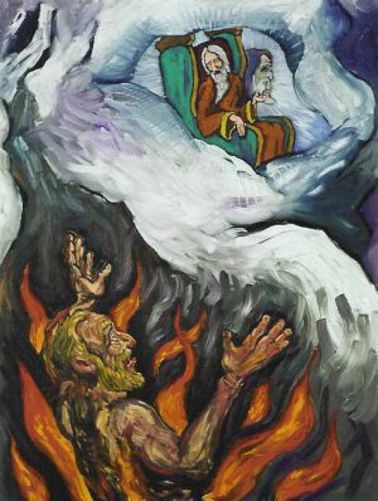
Blessings come to us in many ways, but dealing with our finances sometimes enters its own "sacred" realm. The world's idea of investing is very different from Kingdom investing, and the faithful are challenged by this week's scriptures.
The prophet Jeremiah gets an "opportunity" to buy a family plot in the middle of a war zone. What a deal! Yet Jeremiah, from his position under house arrest by the king, pays the price. It seems crazy to any investor, but Jeremiah is doing Kingdom investing, turning worldly values upside down. He is making a powerful faith statement with his purchase.
In the story of Lazarus and the rich man in Luke, Jesus portrays the self-absorbed rich man as generously blessed by God in worldly wealth. He also portrays the beggar Lazarus as one who has scant worldly blessings by God. The rich man is honored and respected while Lazarus is despised and rejected, at least according to worldly standards and values.
Being consistent, one would expect that the rich man would continue to enjoy the favor of God's blessings after his death, and that the loathsome Lazarus would continue to suffer his miserable fate after his death. However, the worldly expectation gets turned upside down. What's the message here?
Does this mean that the rich are headed to eternal torment, and the poor have a reservation for heavenly bliss? The sermon video below can help figure this out, together with downloads below the video panel.
The prophet Jeremiah gets an "opportunity" to buy a family plot in the middle of a war zone. What a deal! Yet Jeremiah, from his position under house arrest by the king, pays the price. It seems crazy to any investor, but Jeremiah is doing Kingdom investing, turning worldly values upside down. He is making a powerful faith statement with his purchase.
In the story of Lazarus and the rich man in Luke, Jesus portrays the self-absorbed rich man as generously blessed by God in worldly wealth. He also portrays the beggar Lazarus as one who has scant worldly blessings by God. The rich man is honored and respected while Lazarus is despised and rejected, at least according to worldly standards and values.
Being consistent, one would expect that the rich man would continue to enjoy the favor of God's blessings after his death, and that the loathsome Lazarus would continue to suffer his miserable fate after his death. However, the worldly expectation gets turned upside down. What's the message here?
Does this mean that the rich are headed to eternal torment, and the poor have a reservation for heavenly bliss? The sermon video below can help figure this out, together with downloads below the video panel.
| 09-25-16-ff-answers.pdf |
| 09-25-16-off_the_charts-kingdom_investing.pdf |
